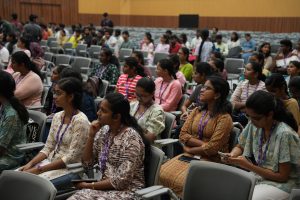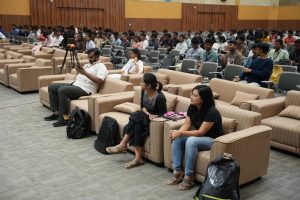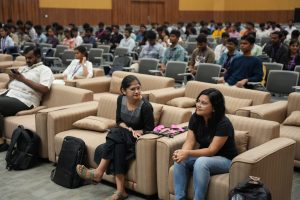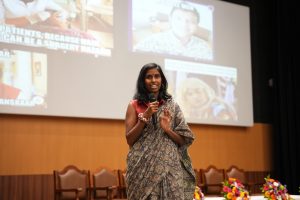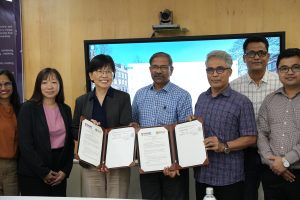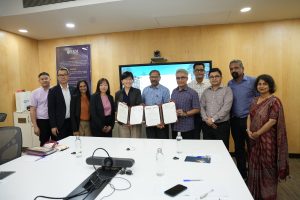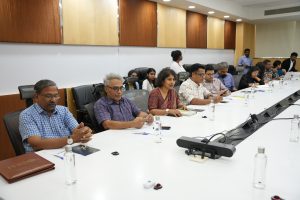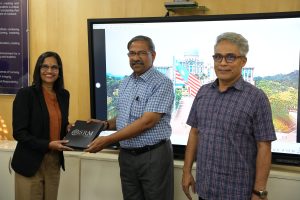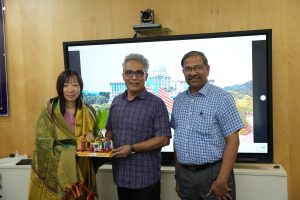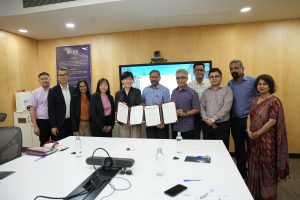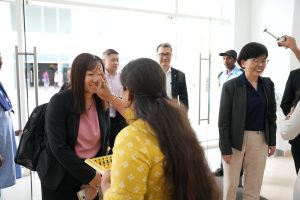A Strategic Partnership with Multi Commodity Exchange of India Ltd.
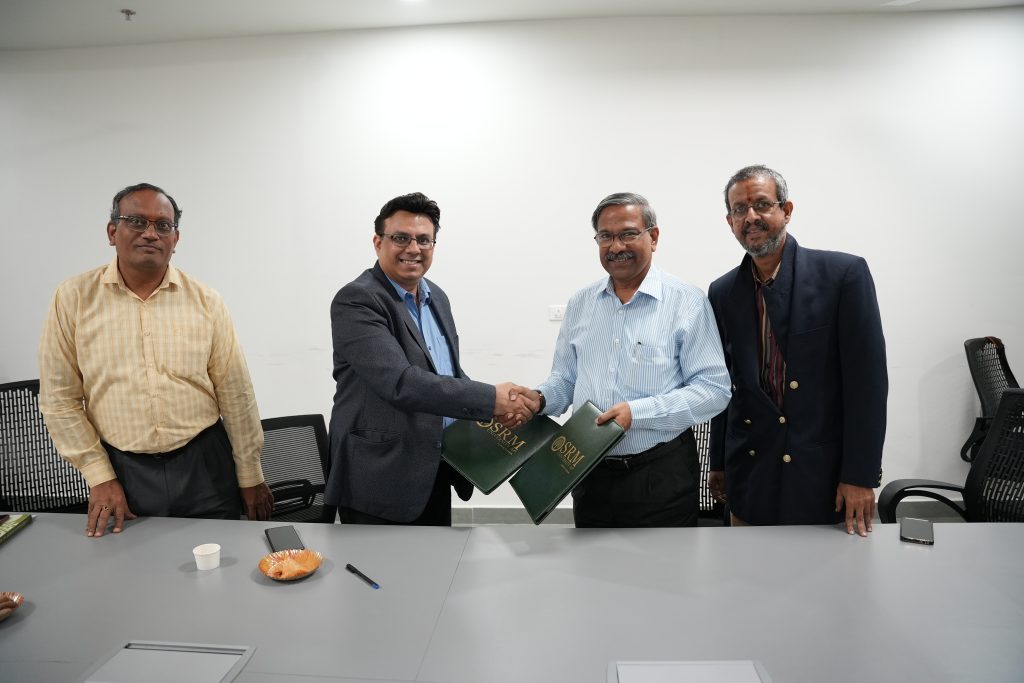
SRM University-AP inked an MoU with Multi Commodity Exchange of India Ltd. (MCX), the largest commodity exchange in the country, to supply highly skilled professionals to meet the industry’s needs. The commodity market plays a vital role in the country’s economic development. Understanding that the industry is expected to create a significant number of job opportunities in the next decade, the university has taken the initiative to partner with MCX to place highly competent graduates at various levels of the company.
The agreement will explore and conduct various interactive sessions, faculty development programmes, research programmes, seminars, conferences and conclaves that would benefit students, faculty and other working professionals. Joint Management Development Programmes (MDP) on the financial / derivatives market, educational conclaves on commodity derivatives inviting participation from other business schools & universities, and events like CONQUEST are some of the initiatives that the MOU manifests.
On the academic front, the MOU agrees that SRM University-AP may launch full/part-time Postgraduate Executive Diploma courses in the Financial /Commodity Derivatives Market with significant input from MCX on the curriculum. The university might also introduce a chapter on “Commodity Derivatives” in its curriculum for the management and commerce programmes. SRM AP will also offer existing courses of MCX, viz. MCX Commodity Professional (MCCP), MCX Certified Index Professional (MCIP) & MCX Certified Options Professional (MCOP) certification(s) as programmes or certification courses under the Paari School of Business.
The partnership with Multi Commodity Exchange of India Ltd. is of grave importance in providing the students and faculty with exposure to the industry, keeping pace with recent market trends, and acquiring an industry-ready skillset.
- Published in Departmental News, MoU, News, Paari Current Happenings
Challenging Norms and Expanding Perspectives with YSK Prerna
 In a world where conversations around gender are evolving rapidly, the Department of Sociology and Anthropology from the Easwari School of Liberal Arts at SRM University-AP hosted a two-part lecture series that sparked introspection, challenged societal norms, and helped foster inclusivity. With honest discussions, cultural references, and meaningful reflections, the sessions resonated deeply with students, encouraging them to rethink what they know about gender.The session saw Artistic Director of Conflictorium – Museum of Conflict, Chattisgarh, and Gujarat, YSK Prerana as its speaker.
In a world where conversations around gender are evolving rapidly, the Department of Sociology and Anthropology from the Easwari School of Liberal Arts at SRM University-AP hosted a two-part lecture series that sparked introspection, challenged societal norms, and helped foster inclusivity. With honest discussions, cultural references, and meaningful reflections, the sessions resonated deeply with students, encouraging them to rethink what they know about gender.The session saw Artistic Director of Conflictorium – Museum of Conflict, Chattisgarh, and Gujarat, YSK Prerana as its speaker.
The first session for the Universal Human Values and Ethics students opened the door to reimagining gender beyond traditional binaries. The discussions tackled pressing issues such as inequality, the choice of motherhood, and the issue of gender-based violence. The session wove in popular memes that students see every day to explore how gender stereotypes are subtly reinforced. The speaker took things a step further, the short film Juice. Set in a household gathering, the movie painted a raw picture of how caste, class, and gender intersect, powerfully illustrating how invisible power dynamics shape everyday interactions.
The session wasn’t about pointing fingers or placing blame. It was about understanding—about seeing the world through a different lens and recognising how ingrained norms can shape perceptions. Students left the room not just with questions but with a drive to seek answers and advocate for change.
The second session, tailored for students of the Open Elective Law and Society, turned the focus inward. It started with a simple question: When did you first become aware of your gender? What followed was an exploration of how gender is more than an identity—it’s a social construct shaped by power dynamics.
Students examined how societal categories like caste and class blend into gendered expectations and how these norms are portrayed through media. But the session didn’t just focus on challenges. It celebrated progress, stressing upon how new meanings and ways of expressing gender are emerging every day.
The sessions made students pause and think about the roles they play in their communities and the changes they can bring. By addressing deeply ingrained issues with honesty and compassion, the Department of Sociology and Anthropology created a space where students could reflect on their own experiences, listen and most importantly ask questions.
- Published in Departmental News, News, Sociology and Anthropology News
SRM University-AP Forges Partnership with TAR UMT, Malaysia
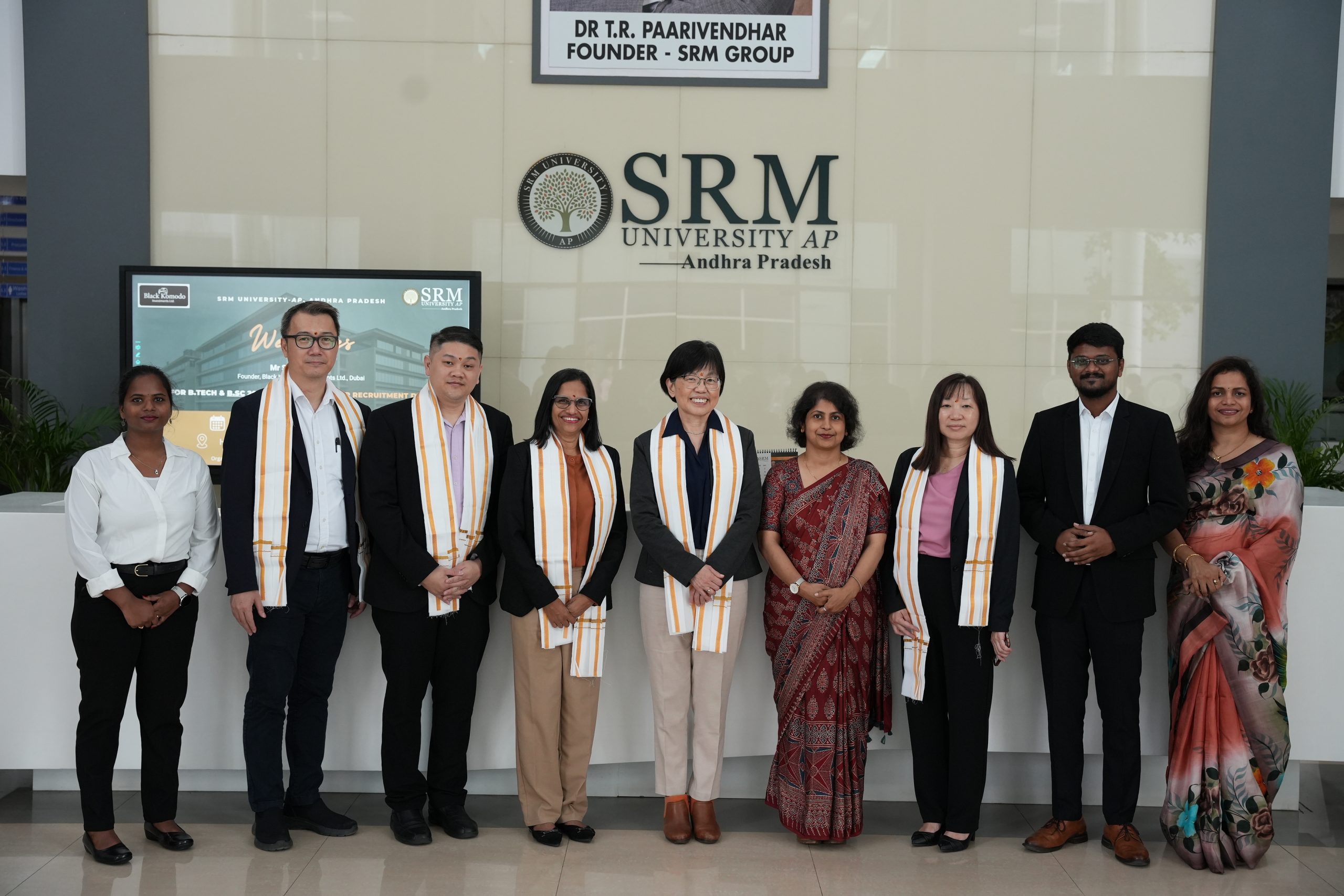 The Directorate of International Relations and Higher Studies at SRM University-AP signed a Memoranda of Understanding (MoU) with Malaysia’s globally renowned institution—Tunku Abdul Rahman University of Management And Technology, TAR UMT, Malaysia.These partnerships are aimed at fostering collaborative research, expanding publication opportunities, offering co-teaching and course supervision, and hosting joint conferences.
The Directorate of International Relations and Higher Studies at SRM University-AP signed a Memoranda of Understanding (MoU) with Malaysia’s globally renowned institution—Tunku Abdul Rahman University of Management And Technology, TAR UMT, Malaysia.These partnerships are aimed at fostering collaborative research, expanding publication opportunities, offering co-teaching and course supervision, and hosting joint conferences.
The Malaysian delegation, represented by Prof. Say Sok Kwan, Vice President for Administration and Internationalisation at TAR UMT, expressed a shared vision. “At TAR UMT, our primary focus is to ensure that we uphold the highest standards in education and prioritise affordable education to all. We are not commercially driven.” She asserted that this partnership will generate research that not only benefits our local community but also has a positive impact on society at large.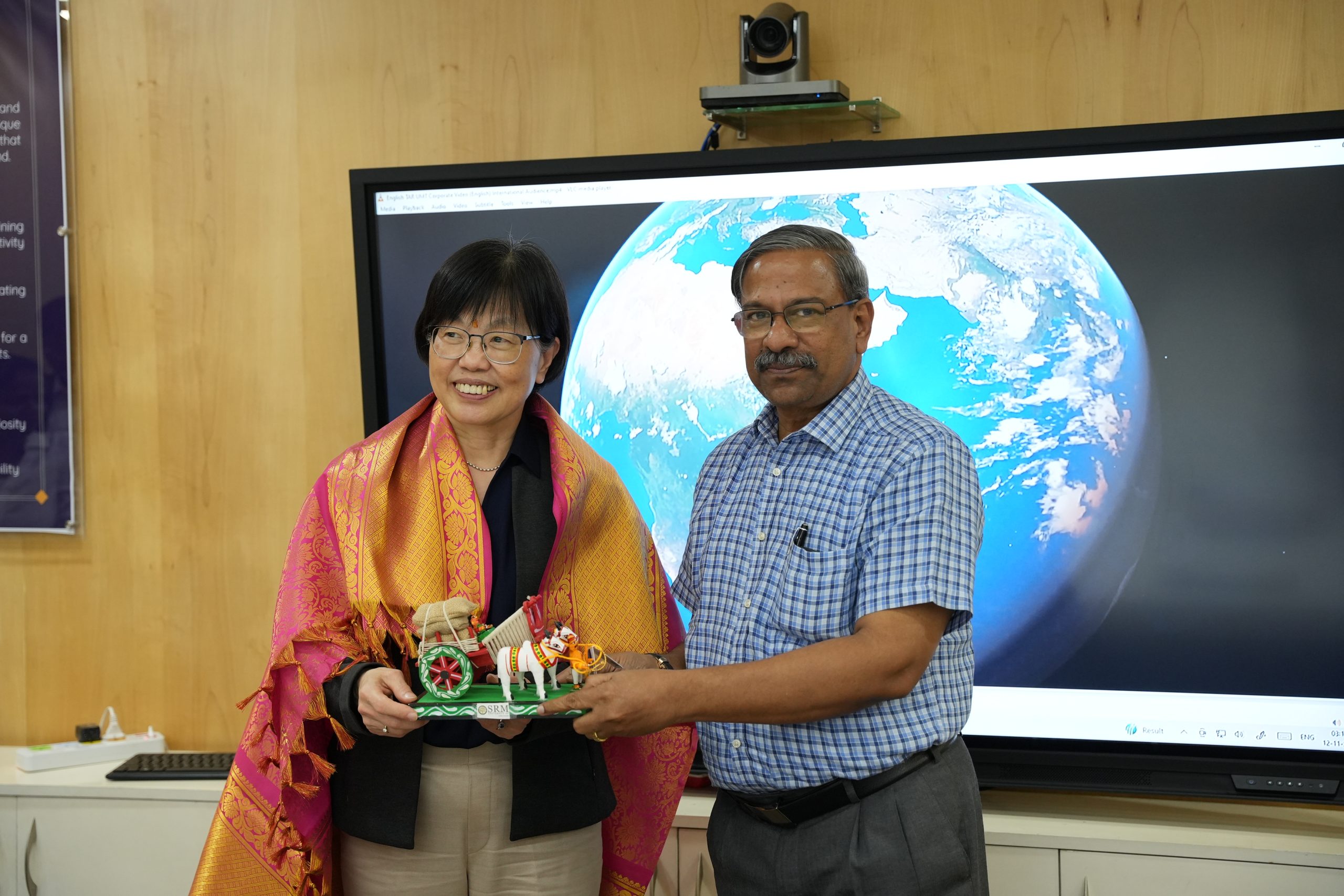
Adding to this sentiment, Prof. Ranjit Thapa, stated that the varsity being a research-intrinsic university wherein the varsity dedicates 15-20% of its budget for research. He stated that collaborating with TAR UMT would be a step towards co-creating knowledge that addresses global challenges. Dr Sudeshna and Prof. Ranjit Thapa brainstormed with the Malaysian delegation on areas that they can begin collaborating, they agreed that Industry Internships, enrollment in upcoming international conferences and co- supervising research would be a great start.
Prof. C V Tomy, Dean School of Engineering and Sciences, presented the Malaysian Delegation with a gist of the university’s research, academic and Entrepreneurial environment. He stressed on the fact that as an institution of higher education SRM AP focuses on research and that here at the varsity, research is encouraged across all programmes, including the faculty and the undergraduate students.
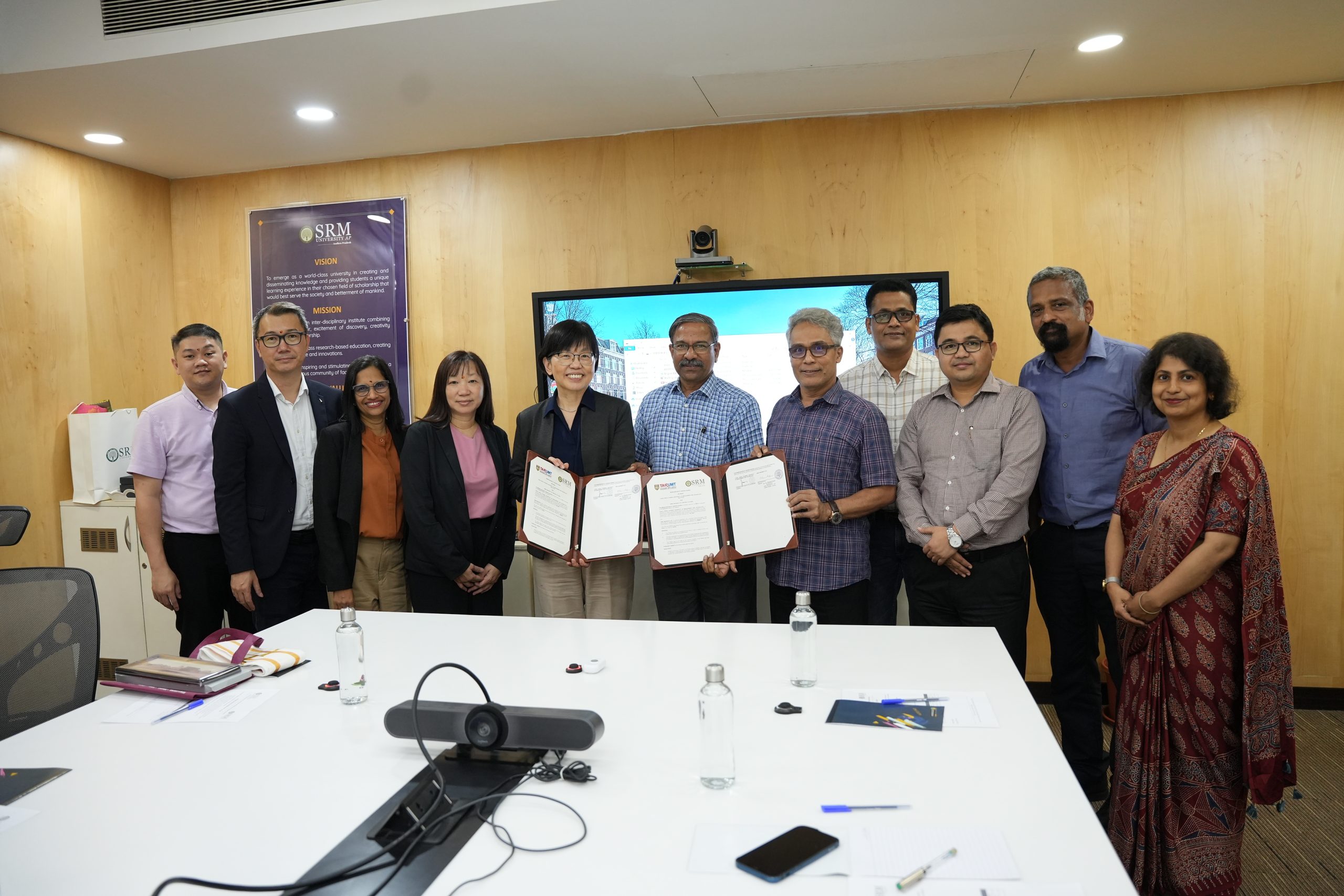 Dr Sudeshna Saha, Associate Director of the Directorate of International Relations and Higher Studies at SRM University-AP, as well as other esteemed deans and faculty members, attended the event. Alongside the Malaysian representatives, including Dr Loke Chui Fung, Vice President for Research & Development and Commercialisation, and Dr Karthiyani Shanmugam, Dean of the Faculty of Social Science and Humanities, Mr Marcus Ooi Hwee Jin– Director, Department of International Student Office, and Mr Danny Chng Loi Peng– Director, Centre for Continuing and Professional Education .
Dr Sudeshna Saha, Associate Director of the Directorate of International Relations and Higher Studies at SRM University-AP, as well as other esteemed deans and faculty members, attended the event. Alongside the Malaysian representatives, including Dr Loke Chui Fung, Vice President for Research & Development and Commercialisation, and Dr Karthiyani Shanmugam, Dean of the Faculty of Social Science and Humanities, Mr Marcus Ooi Hwee Jin– Director, Department of International Student Office, and Mr Danny Chng Loi Peng– Director, Centre for Continuing and Professional Education .
This partnership is poised to enhance academic synergies and contribute significantly to addressing both local and global challenges through collaborative research and education.
Innovating the Art of Teaching Through Gamification & Game-Based Learning (GBL)
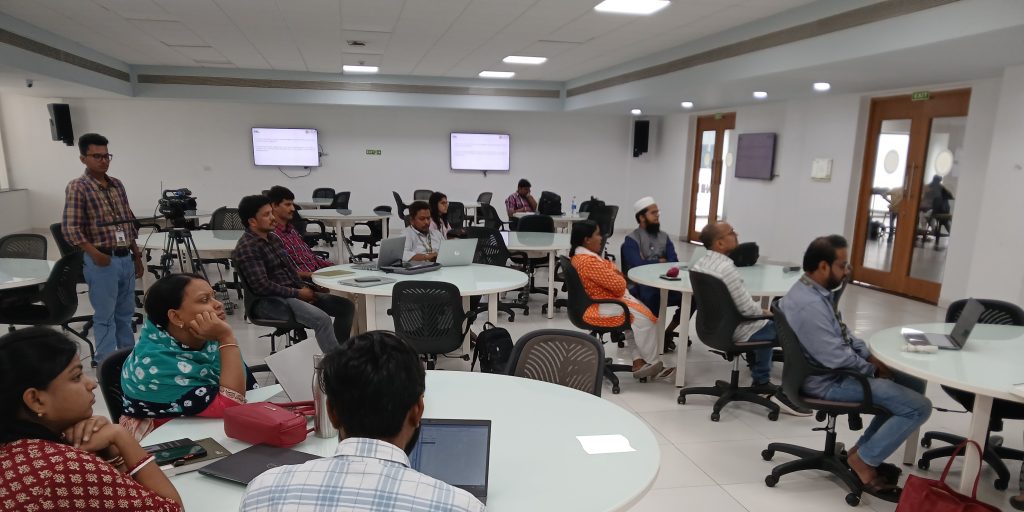
In alignment with the university’s goal to enhance academic excellence, innovation in teaching-learning methods that transgress from non-traditional approaches has taken pivotal importance in academia. To facilitate enhanced and experiential learning experiences for students, the Teaching Learning Centre organised a workshop on “Gamification and Game-based Learning (GBL) in University Education” on November 13, 2024, led by Dr Sunil Chinnadurai, Assistant Professor, Department of Electronics and Communication Engineering. The workshop explored the benefits, challenges, and practical strategies for incorporating Gamification and GBL methods in university-level courses.
The session opened with a discussion on the difference between gamification and game-based learning, two concepts that share similar principles but serve different functions. Gamification, Dr Chinnadurai explained, involves including game-like elements, such as points, badges, and reward systems, in traditional classroom activities. Using these, instructors can transform routine tasks into interactive, motivational experiences for students. Game-based learning, however, takes the concept further by using games as teaching tools. Through this method, students learn by actively engaging in activities that relate to the course matter.
Throughout the workshop, instructors explored how these methods could significantly benefit students. Gamification and GBL have been shown to increase student engagement and actively involve them in learning. This method promotes knowledge skills, boosts creativity, strengthens problem-solving skills, and encourages active participation in the classroom.
The workshop also discussed the practical challenges instructors might face when incorporating GBL and gamification into their courses. Technical issues, student resistance to non-traditional learning methods, and the additional time required for planning were highlighted as common problems. Dr Chinnadurai emphasised the importance of aligning game-based activities with course objectives. Clear rules, along with timely feedback, are essential for creating effective and engaging learning experiences that also meet academic standards.
To provide participants with hands-on experience, the workshop introduced interactive tools such as Kahoot! and Mentimeter, which act as platforms for creating quizzes, polls, and other gamified content. These tools also introduced us to the potential of scenario-based learning.
The workshop highlighted the value of adopting new teaching methodologies in academic pedagogies. As instructors look to enhance their students’ learning experiences, gamification and game-based learning provide promising avenues for making education both rigorous and enjoyable.
- Published in Departmental News, News, Teaching Learning Centre, Workshop




